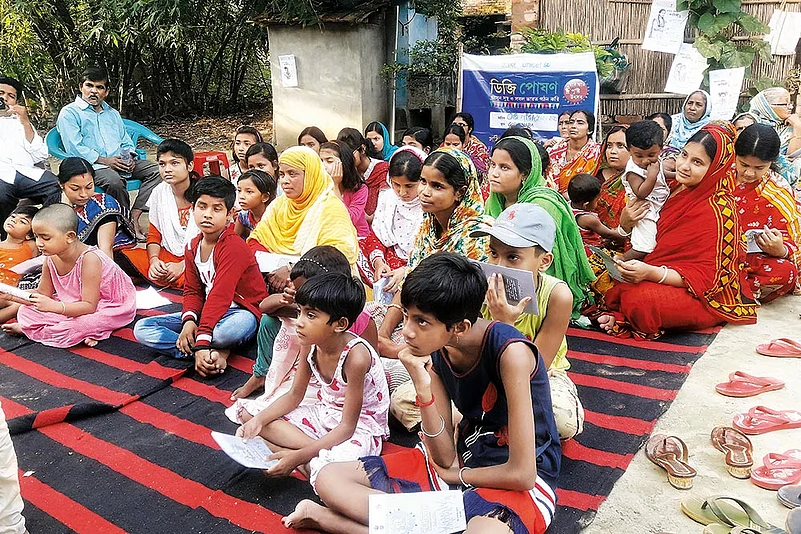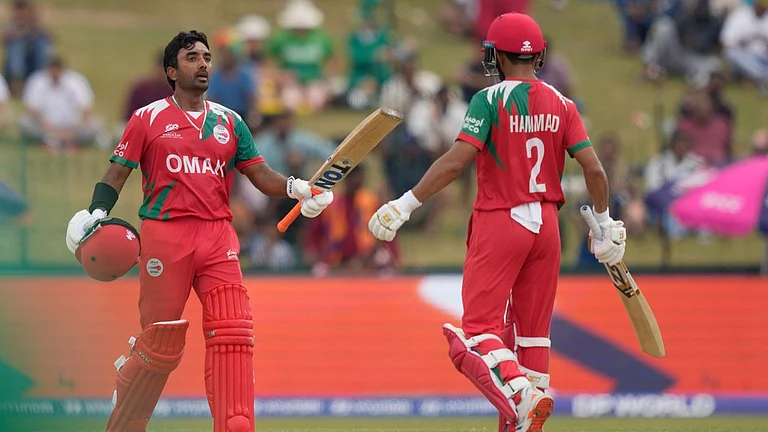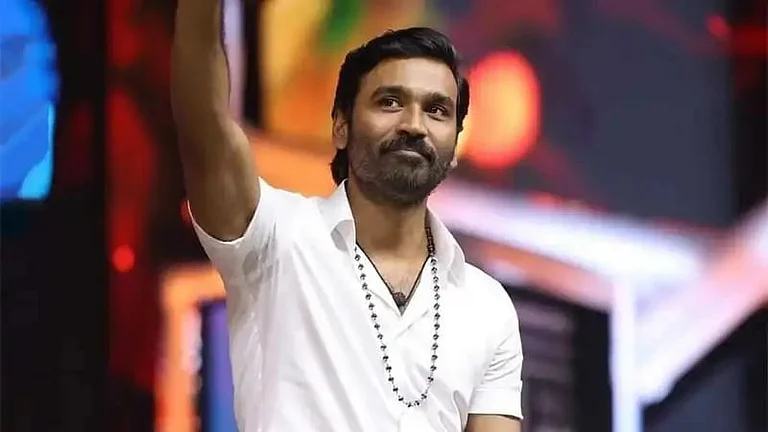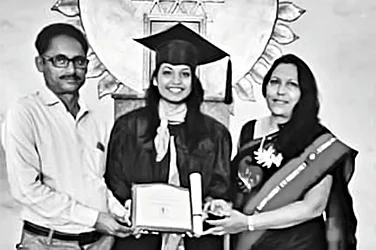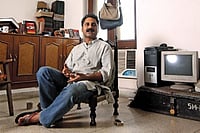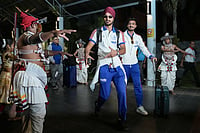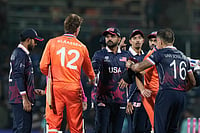Laxmi had seen childbirths in her village, assisted midwives, and helped expecting mothers. But she was unable to understand the possible reasons for her own ordeal—excessively swollen feet and hands, protruding eyeballs and loss of appetite. She suffered it all. Eight months pregnant, this woman in her mid-twenties used to live alone during the day as her husband worked in the field. “I thought we were being punished for our bad deeds; nobody faces such troubles during pregnancy,” she says. She had developed an unusual habit: “I started liking the taste of red bricks and sand; didn’t know what was happening to me.”
It was only in her third trimester, after attending community dialogue sessions by Prerak Vandana Pandey of Poshan (the PM’s Overarching Scheme for Holistic Nourishment), she understood what was ailing her. “She was ignorant of her diet through a major part of the gestation and became deficient in important nutrients,” Pandey recalls. She suffered from severe oedema that caused a bloated body. Her unawareness led to a complicated delivery and poor health of both mother and child. Her child was delivered safely, though, and is in good health.
Another woman, Pushpa, from the same village gave birth to a stillborn last year. This happened despite a “normal” pregnancy and diligent adherence to mother-in-law’s home remedies. She is scared to conceive again.
Such cases are not rare in Sarai Mubarak, a village in Uttar Pradesh’s Ghazipur district, where children are born with under-developed brains and other birth defects; mothers are ignorant of proper maternal healthcare. These women are malnourished, as are their children—even those in the womb. For a healthier society, the pregnant and lactating women not only need dietary nutrients, but counselling to undergo behavioural changes. This is where DigiPoshan, a Digital Empowerment Foundation and UNICEF initiative, aims to make a difference. It strives to improve nutritional outcomes for children, adolescents, pregnant women and lactating mothers by leveraging technology. With the help of a trained cadre called Preraks, community dialogue sessions were conducted at 187 locations across 10 Indian states.
They use tools such short films, collaterals, digital storytelling and interactive devices to pass on information on nutrition. They act like agents of change during the six-month tenure of the programme, mobilising and addressing issues such as antenatal check-ups, diet care during pregnancy, iron and calcium supplementation, benefits of institutional delivery, importance of breast milk and early initiation of breastfeeding.
In Laxmi’s case, the village ASHA worker is monitoring the pregnant woman’s cravings for red bricks—an offshoot of calcium and iron deficiency in her blood. Lack of these two minerals is a common maternal health issue in the countryside. Laxmi has been given supplements. “Humare liye to Prerak didi vardan roop thi (For us Prerak was like a boon),” she says. And on her balanced diet: “I now know that iron and calcium supplements help increase the haemoglobin level. It makes their bones stronger.”
Not just pre-birth care, initial days are crucial too for the baby’s health and for a better immune system. But a lack of day-to-day knowledge, ignorance of first-time mothers, and home medication keep them from proper nutrition. A majority of women interviewed during or after the session hardly knew about the benefits of a mother’s first milk and that newborns should not be fed anything else for at least six months.
“Honey-ginger ghutti or iron syrup should be given to the newborn within first hour of birth. I gave my children cow milk and look how healthy they are,” says Ramkali. She is a mother of two and attended a community dialogue in her neighbourhood. Though Ramkali’s children are healthy, her year-old daughter has not developed a strong digestive system and discharges occult blood sometimes in her stool. A check-up revealed her child was lactose intolerant and cow milk, powdered barley and other tough-to-digest items worsened her stomach.
“If I had not attended this session, I would have never known that we all were following a myth; feeding our children the incorrect things comes from unawareness,” Ramkali says. Now, she is conscious of what she is feeding her children and never misses a chance to let others know that: “A mother’s first milk acts as immunisation for the baby. It provides the strength to fight from diseases; mother milk is a balanced meal as it has all the nutrients in right proportion.”
Anaemia is a known cause of maternal deaths and risk factor for low birth weight. It is the primary cause of prolonged health issues in child and mother. This is a major factor determining morbidity, mortality and long-term impact on health outcomes in adult life. Evidence suggests ante-natal care and institutional delivery as key health interventions to reduce maternal and child deaths. Short-term effects on foetal and infant health are increased risk of morbidity, infection, prematurity, possible birth defects, cretinism and possible damage to brain function.
Lack of awareness, illiteracy, early marriage and patriarchal norms—like, the self-sacrificing custom of women in the family eating last, after everyone’s eaten and whatever little food is left—are factors that often keep women from adequate nutrition. For this, it is important that a sustained dialogue is initiated, engaging all stakeholders. DigiPoshan made sure that along with women, their husbands and elderly members of the family were also addressed through the community dialogue since they are the decision-makers in most households.
In rural pockets where talking openly about pregnancy and maternal health—especially in community gathering—is taboo, Preraks had a challenging task. Apart from identifying the problems and helping create awareness on maternal health, they would often have to counter incorrect practices and dogmatic family patriarchs. “We were asked by elderly members of the community, ‘Humse bhi zyada jaante ho kya? (Do you know better than us?)’. Short films and dialogue cards, posters proved to be helpful in such situations,” recalls a Poshan Prerak.
Aware and informed, participants of the programme are now responsible mothers and have learnt to ask questions. “The community dialogue has busted age-old myths on pre- and post-pregnancy practices. Now I know what to do for my child’s health,” says Varalaxmi, a young mother from Visakhapatnam. During interactions, she learnt the correct way of breastfeeding and the importance of colostrum (mother’s first milk) for newborns.
Such drives made women aware, empowered Preraks, and induced a level of confidence in them. “I have not only become an agent of empowerment but have also moved a step ahead in transforming other women of my village for them to reach out to their peer groups with the knowledge that they have acquired” says Manju Khedi, a worker from Rajasthan’s Alwar. Only healthy mothers can lay the foundation of a healthy society. The initiative strongly believes that educating a woman, not only means educating a family but the community at large as well.
(Some names have been changed)






